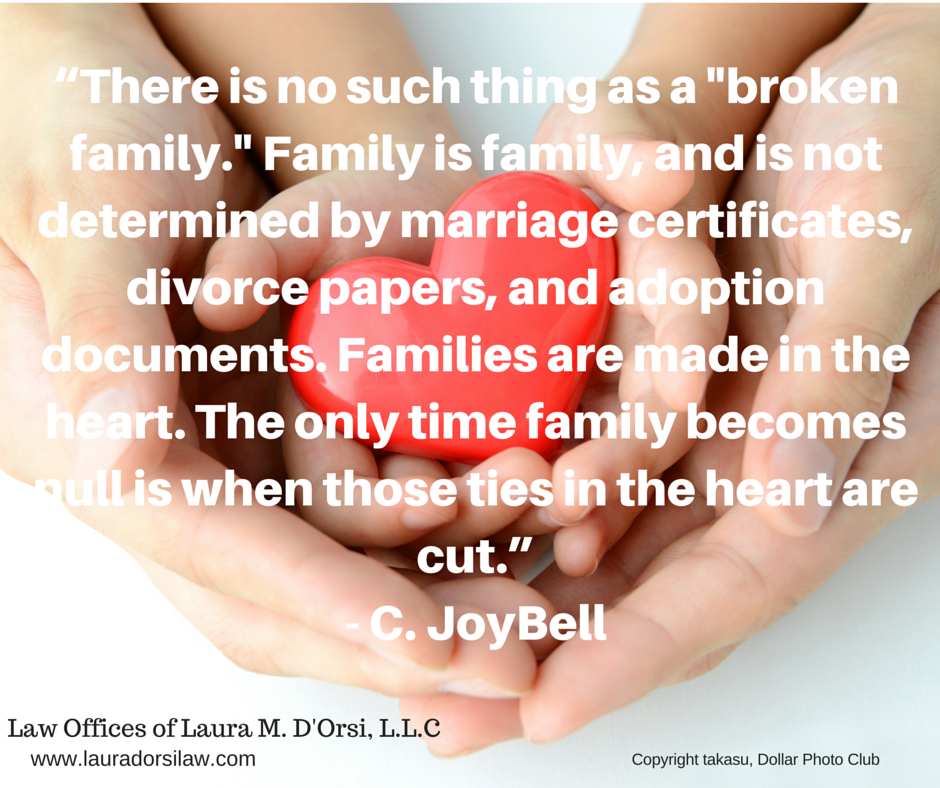“There is no such thing as a “broken family.” Family is family, and is not determined by marriage certificates, divorce papers, and adoption documents. Families are made in the heart. The only time family becomes null is when those ties in the heart are cut.”
– C. JoyBell
It isn’t surprising that divorce ranks only second to the death of a loved one as one of life’s most stressful events.1 Traditional divorce litigation has become synonymous with all-out no-holds barred war leaving only destruction in the form of broken families and shattered finances in its wake. Few are able to escape the emotional toll it takes on the lives of everyone involved.
Whether driven by the expectations of society or the fear that comes from the uncertainty of litigation, “I’ll hire a pit-bull lawyer and take him for all he’s worth” became the mantra of so many who are facing divorce. Divorce in this context rarely ends well. But over the last decade a new approach to divorce has surfaced and it is causing a paradigm shift in how we view the divorce process.
Collaborative Law
If the old way creates broken families, collaborative law allows families to thrive in the new chapter of their lives. Collaborative law is a new approach to the divorce process that focuses on the best possible outcome for everyone involved instead focusing on what went wrong. In the collaborative process, the spouses are represented by collaboratively trained attorneys who assist them in resolving their issues through a series of confidential meetings. The spouses both commit to honest and open communication with a common goal of resolving all areas of matrimonial dispute without going to court. In addition, the lawyers commit to resolving the case without court. In fact, should the collaborative process break down the couple will have to hire new attorneys because the collaborative attorneys are required to withdraw as counsel. This ensures that everyone is committed to reaching a resolution and the threat of going to court is removed from the equation. A team of collaborative professionals including mental health professionals and financial experts is also available to assist in the process.
The benefits of collaborative divorce include:
Protects Children
Children are often the ones who suffer most when divorce becomes adversarial. The emotional toll of parents involved in a court battle can have leave permanent scars. This process fosters collaboration on creative solutions that are in the best interest of the children without them being used as leverage. The importance of shared parenting for the well-being of the children is acknowledged and encouraged in the collaborative process taking the focus away from conflict in visitation schedules.
Saves Time and Money
The collaborative process can result in significant savings over traditional divorce litigation because the couple voluntarily provides financial and other information without the need for discovery. In addition, because they control the process they are not held captive by court dates and the legal process.
Protects Extended Family
In a litigated divorce where accusations are being made and lines being drawn, extended family and friends are often forced to take sides. The end result can be devastating as grandparents, aunts and uncles and others become isolated. Naturally, collaborative law protects these relationships.
Privacy
Collaborative divorce also protects the privacy of the couple because negotiations do not become part of the public court record. All meetings are confidential. The only information that will become public record will be the final divorce decree.
Because the divorcing couple, with the help and support of their own attorneys, crafts the agreement together in an atmosphere of cooperation and communication, the final outcome tends to be one where everyone wins.
1. Holmes and Rahe Stress Scale.http://www.healthline.com/health/depression/divorce

